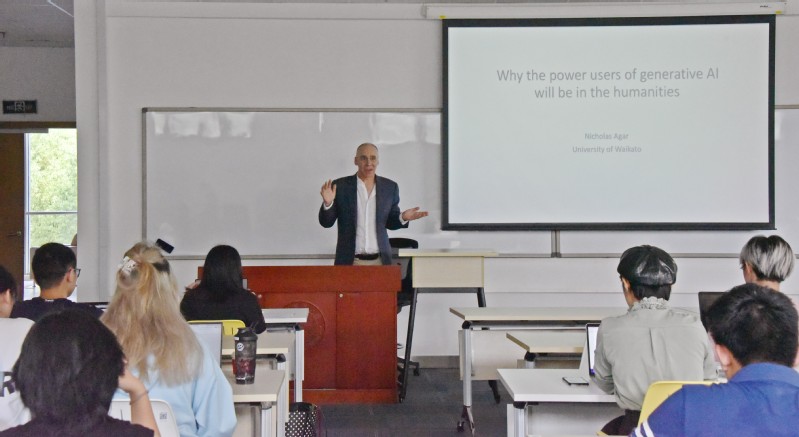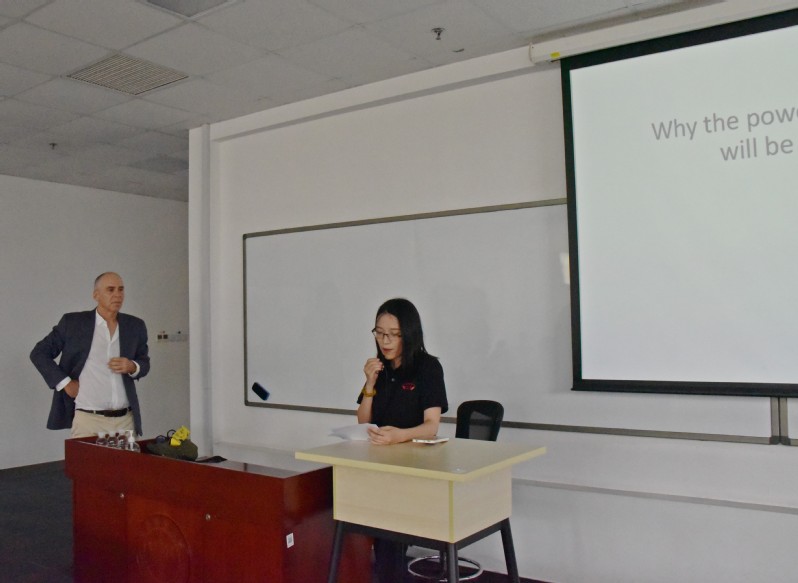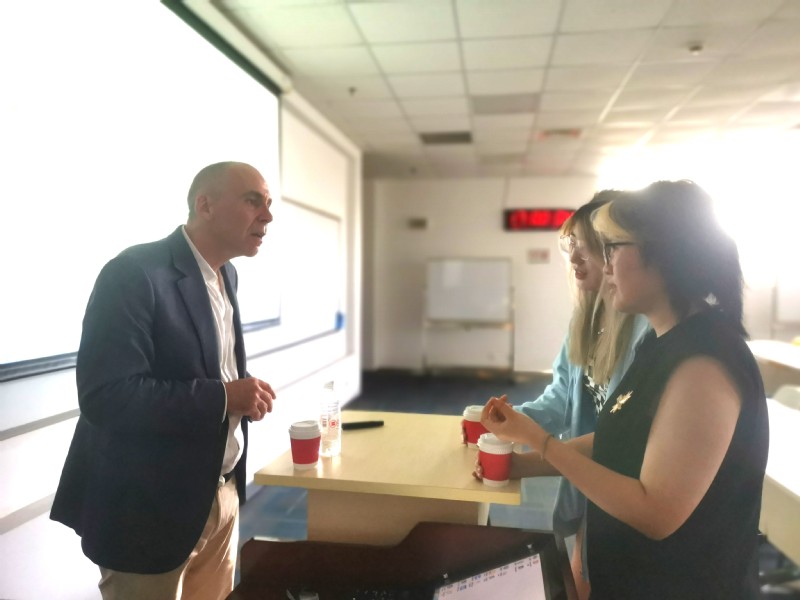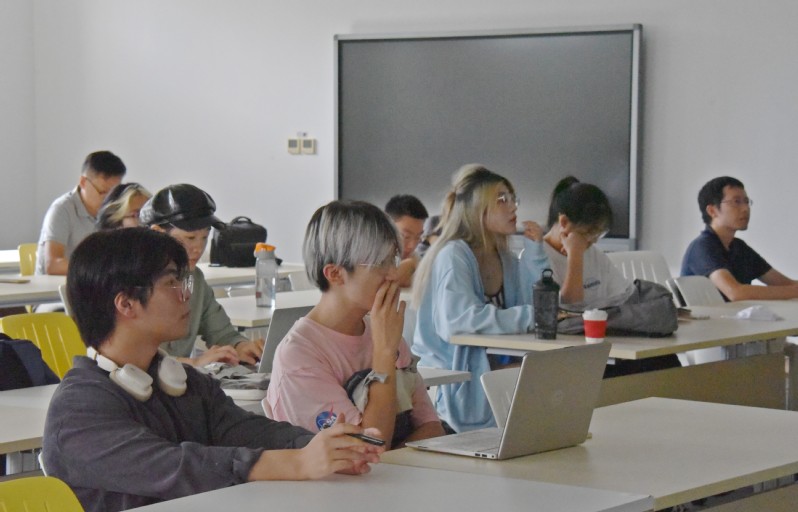
At the invitation of the Institute of Humanities at the ShanghaiTech University, Professor Nicholas Agar, an ethics professor at the University of Waikato in New Zealand, delivered a captivating lecture on September 6, 2023, to faculty and students. The lecture was hosted by Assistant Professor Yawen Zou from the Institute. Professor Agar explored the growing impact of generative artificial intelligence (AI) in the humanities, as well as the unique contributions and potential of humanities researchers as power users in this technological advancement.

Professor Agar initially pointed out that the current development of AI has two distinct missions. The first mission is to build AI systems that are more intelligent than the current LLMs, a task primarily entrusted to talents in STEM fields. He emphasized the second mission, which is to maximize the potential of AI technology, a responsibility that falls upon the shoulders of humanities scholars. He predicted that in the future, almost everyone would use AI, and an individual's success would depend on how they harness AI. He prompted us to consider a question: what skills will be most suitable to complement generative AI by 2030?
Professor Agar briefly introduced the concept of prompt engineers, a popular occupation globally, who strategically construct text that can be understood by generative AI models. He argued that humanities scholars could adopt a pragmatic approach to using AI without getting bogged down in technical details. As an ethics professor, he naturally expressed concerns about the inherent biases in generative AI and stressed the importance of addressing these biases. He encouraged humanities scholars to get involved and promote ethical discussions related to AI. He provided an example involving WebText2, which made a significant contribution to the training data of GPT-3, containing content from sources like Reddit. Professor Agar believed that creators and users of AI have a responsibility to ensure that AI-generated content aligns with widely supported ethical and cultural values. He shared his enthusiasm for using CHATGPT and encouraged others to challenge (or playfully, bully) CHATGPT like a philosopher or lawyer. He showed how he prompted CHATGPT to make factual and value judgments, such as asking if Is medtronic a tax inverter?”

Later, Professor Agar engaged in a 30-minute Q&A session with the faculty and students present. Topics discussed included addressing AI bias, the authenticity of AI responses, how to view the originality of AI-assisted composition, how humanities scholars like historians can better use CHATGPT, and what new humanistic values are needed when working with CHATGPT. After the lecture, several students lingered to have in-depth discussions with Professor Agar.

Professor Agar painted a bright future for generative AI in the humanities and underscored the critical role of humanities scholars in shaping responsible AI technology. Humanities scholars should actively embrace the wave of CHATGPT use with creativity, as he firmly believed that AI would continue to evolve and ultimately become an indispensable part of our daily lives. As we embrace this development, the intersection between technology and humanities will not only shape the future of AI but also shape the ethical and cultural values of our future society.
